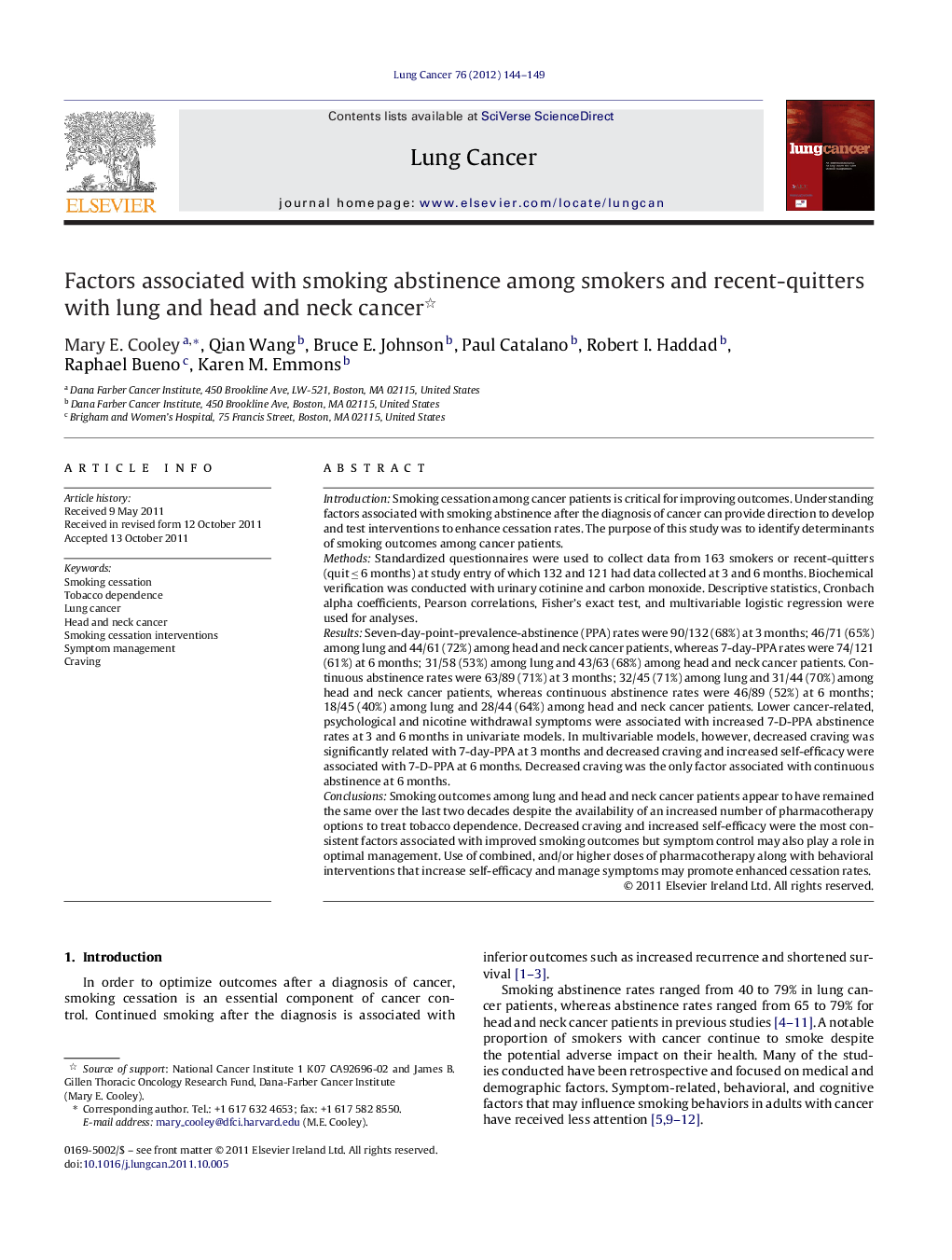| Article ID | Journal | Published Year | Pages | File Type |
|---|---|---|---|---|
| 2141618 | Lung Cancer | 2012 | 6 Pages |
Abstract
Smoking outcomes among lung and head and neck cancer patients appear to have remained the same over the last two decades despite the availability of an increased number of pharmacotherapy options to treat tobacco dependence. Decreased craving and increased self-efficacy were the most consistent factors associated with improved smoking outcomes but symptom control may also play a role in optimal management. Use of combined, and/or higher doses of pharmacotherapy along with behavioral interventions that increase self-efficacy and manage symptoms may promote enhanced cessation rates.
Keywords
Related Topics
Life Sciences
Biochemistry, Genetics and Molecular Biology
Cancer Research
Authors
Mary E. Cooley, Qian Wang, Bruce E. Johnson, Paul Catalano, Robert I. Haddad, Raphael Bueno, Karen M. Emmons,
